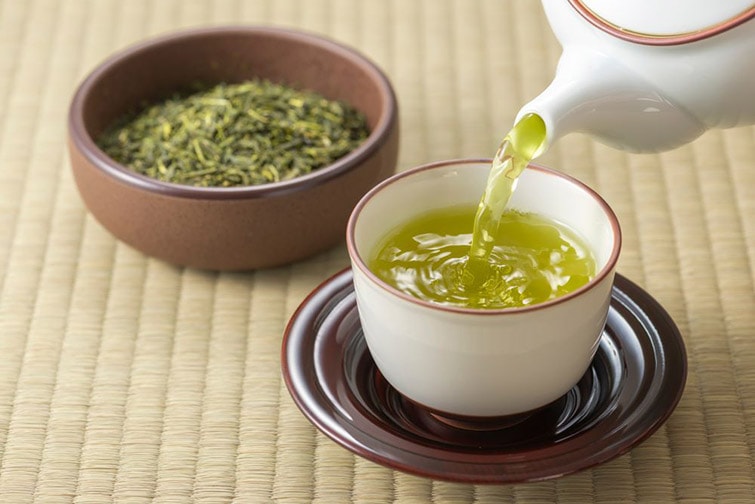Source: Thailand Medical News Jan 10, 2020 6 years, 1 month, 6 days, 5 hours, 30 minutes ago
According to a study published in the
European Journal of Preventive Cardiology, a journal of the European Society of Cardiology (ESC), drinking
green tea at least three times a week is linked with a
longer and
healthier life.

First author Dr. Xinyan Wang, Chinese Academy of Medical Sciences, Beijing told
Thailand Medical News, “Habitual
tea consumption is associated with lower risks of
cardiovascular disease and all-cause death. The favorable
health effects are the most robust for
green tea and for long-term habitual
tea drinkers.”
The study analysis included 100,902 participants of the China-PAR project2 with no history of heart attack, stroke, or cancer. Participants were classified into two groups: habitual
tea drinkers (three or more times a week) and never or non-habitual
tea drinkers (less than three times a week) and followed-up for a median of 7.3 years.
The study showed that habitual
tea consumption was associated with more
healthy years of life and
longer life expectancy.
For instance, the analyses estimated that 50-year-old habitual
tea drinkers would develop coronary heart disease and stroke 1.41 years later and live 1.26 years longer than those who never or seldom drank
tea.
Another example, compared with never or non-habitual
tea drinkers, habitual tea consumers had a 20% lower risk of incident heart disease and stroke, 22% lower risk of fatal heart disease and stroke, and 15% decreased risk of all-cause death.
The significant potential influence of changes in
green tea drinking behavior were analyzed in a subset of 14,081 participants with assessments at two time points. The average duration between the two surveys was 8.2 years, and the median follow-up after the second survey was 5.3 years.
It was observed that habitua
l tea drinkers who maintained their habit in both surveys had a 39% lower risk of incident heart disease and stroke, 56% lower risk of fatal heart disease and stroke, and 29% decreased risk of all-cause death compared to consistent never or non-habitual
tea drinkers.
Dr. Dongfeng Gu, Chinese Academy of Medical Sciences and senior author added, “The protective effects of
tea were most pronounced among the consistent habitual
tea drinking group. Mechanism studies have suggested that the main bioactive compounds in
tea, namely
polyphenols, are not stored in the body long-term. Thus, frequent
tea intake over an extended period may be necessary for the cardioprotective effect.”
It was shown in a subanalysis by type of
tea, drinking
green tea
was linked with approximately 25% lower risks for incident heart disease and stroke, fatal heart disease and stroke, and all-cause death. However, no significant associations were observed for black
tea.
The researchers noted that a preference for
green tea is unique to East Asia. “In our study population, 49% of habitual
tea drinkers consumed green
tea most frequently, while only 8% preferred black
tea. The small proportion of habitual black
tea drinkers might make it more difficult to observe robust associations, but our findings hint at a differential effect between
tea types.”
Two significant factors may be at play. First,
green tea is a rich source of
polyphenols which protect against cardiovascular disease and its risk factors including high blood pressure and dyslipidaemia. Black
tea is fully fermented and during this process
polyphenols are oxidized into pigments and may lose their antioxidant effects. Second, black
tea is often served with milk, which previous research has shown may counteract the favorable
health effects of
tea on vascular function.
Interestingly, gender-specific analyses showed that the protective effects of habitual
tea consumption were pronounced and robust across different outcomes for men, but only modest for women. Dr. Wang said: “One reason might be that 48% of men were habitual
tea consumers compared to just 20% of women. Secondly, women had much lower incidence of, and mortality from, heart disease and stroke. These differences made it more likely to find statistically significant results among men.”
Dr Wang added: “The China-PAR project is ongoing, and with more person-years of follow-up among women the associations may become more pronounced.”
The researchers concluded that randomized trials are warranted to confirm the findings and provide evidence for dietary guidelines and lifestyle recommendations.
Reference: “Tea consumption and the risk of atherosclerotic cardiovascular disease and all-cause mortality: The China-PAR project” by Xinyan Wang, Fangchao Liu, Jianxin Li, Xueli Yang, Jichun Chen, Jie Cao, Xigui Wu, Xiangfeng Lu, Jianfeng Huang, Ying Li, Liancheng Zhao, Chong Shen, Dongsheng Hu, Ling Yu, Xiaoqing Liu, Xianping Wu, Shouling Wu and Dongfeng Gu, 8 January 2020, European Journal of Preventive Cardiology.
DOI: 10.1177%2F2047487319894685
